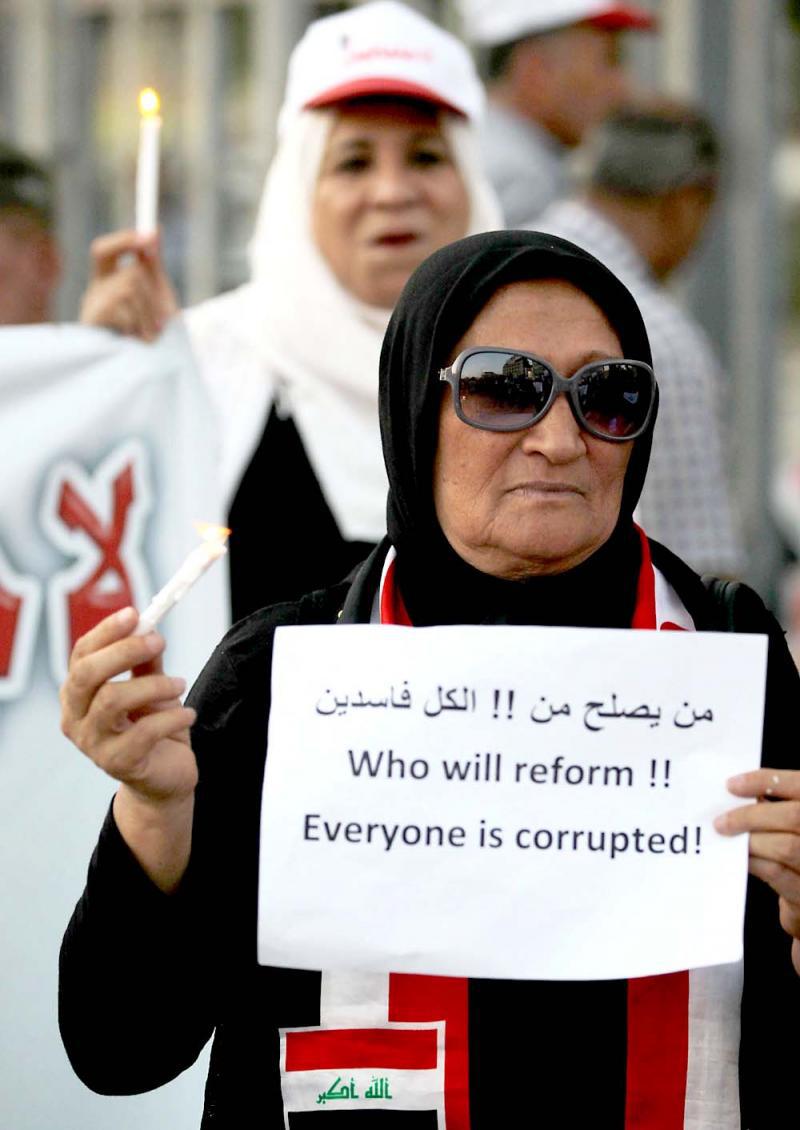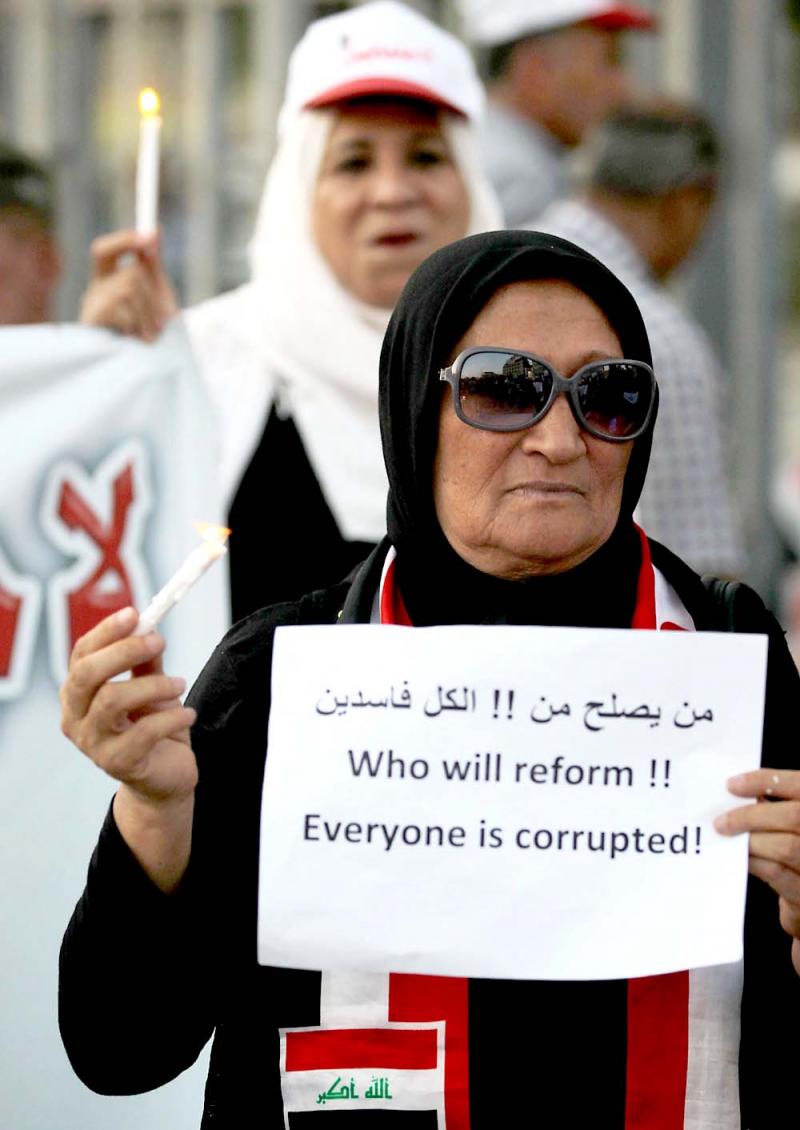Iraq religious authority feels heat of anti-corruption protests
The clamour of protests in Iraq has reached the ears of the top Shia cleric, Grand Ayatollah Ali al-Sistani.
Realising the gravity of the situation, Sistani scrambled to save his own popularity and, by extension, authority, which has been jeopardised by the people whose election he blessed not long ago.
It became urgent to react because even his most devout followers demonstrated a few years ago in southern Iraq shouting shocking slogans of the type “We have been robbed in the name of religion” or “We’ve been fooled by the supreme leader by making us elect the worst people.”
That was unprecedented in the history of the Shia religious authority known as marja’iyah. Then came the sermon of July 27 at Karbala where, in deceptive and ambiguous language, the marja’iyah announced its support of the protests.
Those familiar with language and style of the Shia religious authority understood that Sistani has buried any hope for Haider al-Abadi to get his much-coveted second term as prime minister of Iraq.
Abadi has been working hard to stay on as prime minister even at the cost of leaving the Dawa Party.
Abdel Mahdi al-Karbalani, Sistani’s representative in Karbala, explained that the next prime minister will have to bear full responsibility for the government’s performance and must have the courage and confidence to apply strict criteria in choosing the members of his cabinet as well as the right people for the high offices and special appointments.
Karbalani emphasises that the government must “urgently satisfy the protesters’ demands and relieve their misery; the next government must be formed as soon as possible and on solid bases using serious competent people; the prime minister must bear the full responsibility [for his government] and must be firm, strong and brave to carry out the war on corruption, which is gangrening the country; this ought to be his first duty and essential mission, an unrelenting war on corruption.”
Unfortunately for Abadi, he does not possess the desired qualities even if this was the same Abadi that the supreme Shia authority picked and blessed to be prime minister a few years ago.
Abadi came out strong with his anti-corruption rhetoric. He said he would crush corruption with an iron fist but, in the end, did nothing. It has become a joke among Iraqis to say that it took Abadi only 24 hours to know that there were “infiltrators” among the street protesters but couldn’t find many corrupt figures to bring to justice during his entire term as prime minister.
Wanting to please everyone, the Shia authority is ready to mediate between the government and powerful political parties. In the sermon, Karbalani said: “We have on several occasions advised senior politicians to work towards reforms and stop protecting the corrupt personalities.” He quickly added: “We have also advised the citizens on each election occasion that reform and change are the best choices. That is what everybody wants and what the country needs badly and it won’t happen unless you strive for it correctly.”
Iraqis, however, did not forget that it was this same Shia authority that blessed the accursed rule of sectarian parties in Iraq. Clerics warned their followers that, if they didn’t vote for those parties, they would have to divorce their wives. The same religious authority contributed to the making of a monstrous constitution that had nothing to do with Iraq and that is the source of its crises. Iraqis did not forget that this same religious authority had refused to declare war on the military occupation of Iraq.
In a news release, Faiq al-Sheikh, a member of parliament from the Democratic Civilian Coalition, accused the Shia religious authority of supporting corruption in Iraq by meddling in Iraqi politics since 2003. He said that the authority in Najaf and its head — Sistani — are the source of all corruption in Iraq.
The main concern of the marja’iyah is to protect itself from the protests that have reached its gates. However, there is no escaping the truth: The Shia authority can no longer ignore the angry voices of its followers or ignore the abominable corruption in Iraq.
Bahira al-Sheikhly is an Iraqi writer.
This article was originally published in The Arab Weekly.







